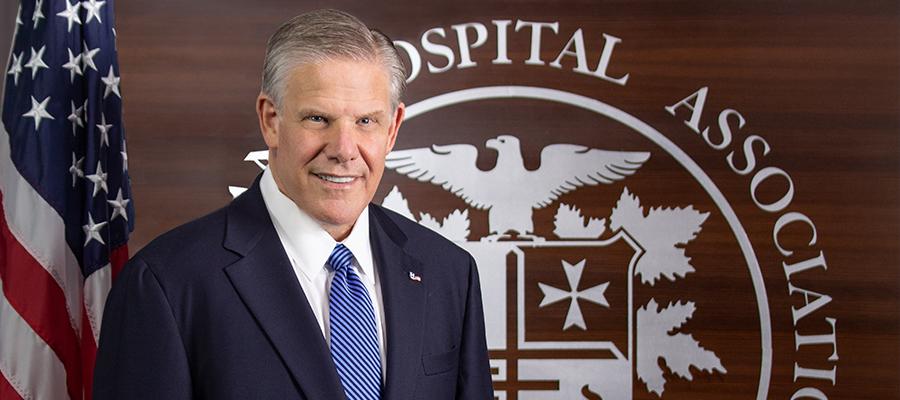Make August Count: Host Your Lawmakers at Your Hospital

Next week senators and representatives begin their August work period. They’ll be in their home states and districts meeting with constituents about the issues that matter most.
We need to ensure that supporting the health care workforce and rejecting cuts in payments for patient services provided to Medicare and Medicaid beneficiaries are at the top of their list.
One of the best ways to do that is to invite your legislators to your hospital so they can see all of the great things your caregivers do for patients every day, as well as the challenges you face.
Lawmakers and their staffs need to see how your hospital or health system is a cornerstone of their community. In addition to providing high-quality clinical care, lawmakers need to hear how their hospital: provides financial assistance to those in need; helps with housing; ensures access to healthy food; supports educational programs; provides health screenings and transportation to medical appointments; administers vaccination clinics and so many other programs that enhance the community’s health and well-being.
Legislators need to be aware of this work now more than ever. That’s because the House and Senate are considering so-called site-neutral legislation that would further reduce Medicare funding for patient services provided by hospitals.
- Three House committees — Energy and Commerce, Education and the Workforce, and Ways and Means — have passed their own legislation that eliminates payment differences for drug administration services despite the fact that hospital outpatient departments care for everyone, maintain emergency stand-by services, take care of more complicated cases, and have to meet tougher regulatory requirements than other sites of care. This comes on top of the fact that Medicare already reimburses for this care at levels that are less than the cost of delivering the service to patients.
- The Senate Committee on Health, Education, Labor and Pensions also is considering legislation that would decrease hospital reimbursements through site-neutral payment policies in the commercial sector by banning the use of facility fees and dictating reimbursement rates between payers and hospitals.
When the House and Senate return to Washington in September, it’s likely that they will continue to press forward with their attempts to implement site-neutral legislation.
That’s why meeting with your lawmakers in August is so pivotal. They need to hear from you and your community members that site-neutral proposals would reduce patient access to vital health care services, particularly in rural and other medically underserved communities.
The AHA has provided some guidance and resources in a recent Action Alert to help you maximize the results of a visit from your lawmakers or their staffs. They include talking points about protecting access to care for patients and communities; tips for meeting with your lawmakers; and best practices for effective advocacy. Watch for additional resources in an upcoming Action Alert.
Please get on your senators and representatives’ calendar for the next month to ensure that they understand what’s at stake. When our field speaks forcefully with one voice, our lawmakers hear us — and we get results. Let’s make that happen again.

